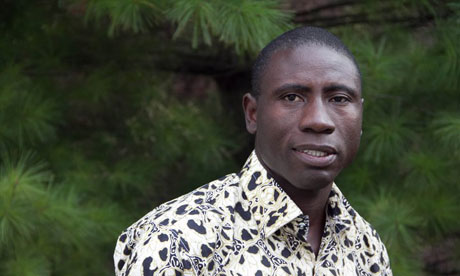When we think of a country like Ghana, we like to think that we are a forward-thinking nation, respectful of the human rights of our people. So when we hear of a practice that sounds so foreign and of an era past, still happening in our very own backyard, it knocks us off our feet.
It is time we faced the fact that skeletons still exist in our nation’s proverbial closet; skeletons which must be exposed and wiped out for good.
At age 10, Kwesi’s father died and in order to pay the funeral debt, his mother was forced to give him to a trafficker, who took him to Lake Volta. On Lake Volta, Kwesi endured great physical abuse at the hands of his slave master, precarious working conditions where he almost drowned, constant psychological torment and persistent hunger. After almost two years as a fishing slave, Kwesi was rescued by Challenging Heights, a child centred organisation based in Ghana. Kwesi spent a year undergoing an intensive rehabilitation program at Challenging Heights’ shelter for rescued children, before being reintegrated with his family. Today the picture of Kwesi is dramatically different. He is a happy and sociable 14 year old boy. He is engaged in school and enjoys sports, as well as spending time with his family. Challenging Heights has supported Kwesi’s education, as well as given his family business start-up capital, so that they can provide for him.
James Kofi Annan, the founder of Challenging Heights, and a former child slave himself, was sold into slavery at the age of six and forced to work as a child fisherman until he was 13.
As the youngest child of an illiterate family, being enslaved was not uncommon in Ghana when I was growing up. I worked as a child fisherman in more than 20 villages between the ages of six and 13, when I finally escaped and returned home. During the time I was captive; I was tortured and abused in various forms. On a daily basis, my working day started at 3am, and ended at 8pm, and was full of physically demanding work. I was usually fed once a day and would regularly contract painful diseases which were never treated as I was denied access to medical care.
I was first trafficked with five other children, and out of the six of us; three lived, and three did not. I saw many children die from either abuse or the rigorous work they were forced to do.
In a recent interview with the Guardian, James Kofi Annan detailed his journey as a child slave, the work he now does through his charity to save child slaves, and how far we have to go as a nation to put an end to this very harmful practice.
What other harmful and archaic practices do you know of that are still being practiced in Ghana, and what role do you think we have as a nation to expose and put an end to these practices? Let’s discuss them in the comments section below. It’ll make for an interesting discussion.
Related articles
- James Kofi Annan: turning around the life of a child slave (theguardian.com)
- Booo! No child should be for sale! (aktiveru.wordpress.com)
- Big Insight, Little People. (rosasommermartin.wordpress.com)
- 12 Years a Slave a ‘torch’ for race relations, says Steve McQueen (theguardian.com)

